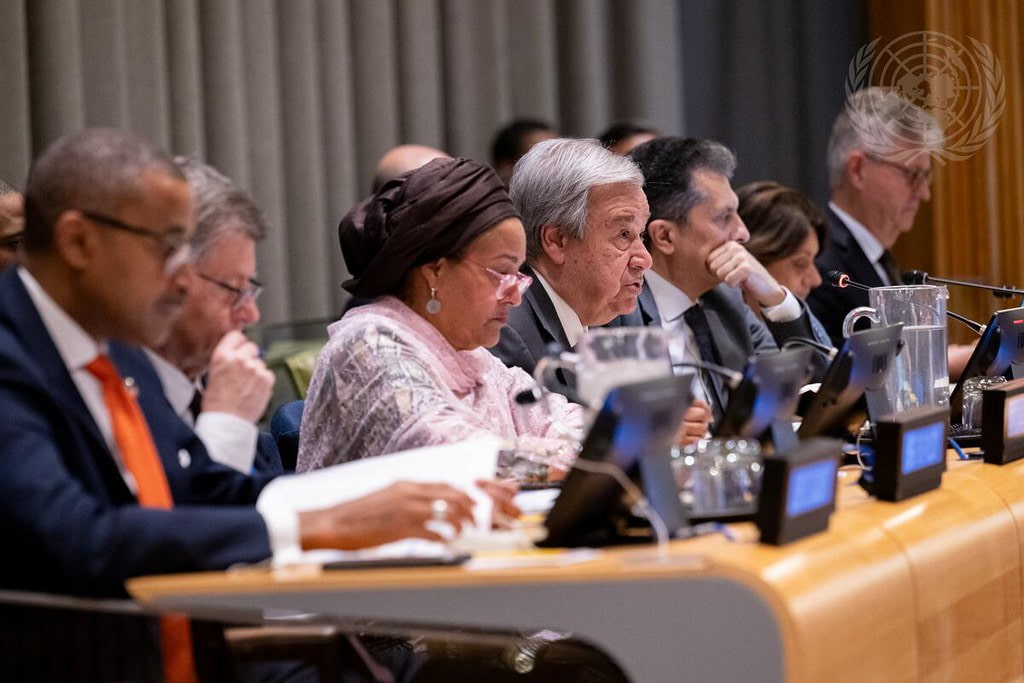What does it mean to truly listen? In the context of global fracturing, existing and portending conflict, and a realignment of regional power, there has been growing recognition among Western leaders that to engage effectively with states from the Global South, they need to be better at listening. UK Foreign Secretary David Lammy made it a theme of his vision for the new Labour government, and in a recent article the Finnish President, Alexander Stubb, emphasised how engaging more with the Global South was key to realising global objectives. It is a timely acknowledgement of the need for change. Yet existing and prior misalignments between Western and Global South states suggest that even though it might be a positive shift that the West wants to listen, the real question is whether it knows how.
As states convene at the Summit of the Future in New York next week, the conference offers a valuable test. The United Nations’ initiative brings the international community together to work on a “Pact for the Future” – finding bolder solutions to create a more sustainable and prosperous world across five core themes. Listening and understanding the positions of others will be more important than ever.
Listening is an active process. It is not simply about being present and tolerating another, but an engaged attempt to hear and understand what one’s counterpart has to say.
Typically, however, in such forums the West has often assumed a subjectivity in determining the meaning and standards of global exchange. In doing so, they have frequently been perceived as coercive and domineering. Unwilling or unable to recognise the experience of others. Leaders of the Global South have often cited the West’s failure to perceptively hear what they are saying in these spaces.
In September 2021, against the backdrop of the pandemic and the inequitable and asymmetrical access to vaccines, Barbadian Prime Minister Mia Mottley stressed the frustrations of many countries of the Global South about the lack of action on their concerns. Speaking at the United Nations, she asked: “How many more times … will we have a situation where we say the same thing over and over and over to come to naught? … How many leaders must come to this podium and not be heard, before they stop coming? … What is the relevance of an international institution that only talks but does not talk with each other?” Without a change in the status quo, there is a risk the Summit speaks fine words but takes insufficient action on the concerns and interests of the Global South.
Listening is an active process. It is not simply about being present and tolerating another, but an engaged attempt to hear and understand what one’s counterpart has to say. It involves hearing what is really being said, what matters most, and seeking to discern what lies beneath the words. This does not mean one has to accept or endorse their views, but the effort and the process are important to build cooperation.

Listening is significant because it recognises the agency of another, affording them dignity and equity. By doing so, it lays the foundations of exchange and dialogue. And facilitates the pursuit of interests by bringing others to the table and fostering relationships built on trust and engagement as opposed to domination or compulsion. If states are to pursue their interests in collaboration with others, they must not only apply their own wishes but be able to perceive those of others. In the process, it opens up space for new perspectives and experiences, revealing avenues for diverse and creative approaches, and offering opportunities to create shared meaning around collective challenges and common goals.
In these diplomatic and international settings, the West must go beyond giving lip service to ideas of cooperation.
In the context of the West listening to the South, it requires a process of engaging with their experiences of the past and aspirations for the future, on their own terms. Rather than patronising, it should be honest and sincere, providing space for different countries and people to share their views, and fears, and dialogue around common points of interest and connection. The agenda and agency cannot be solely that of Western states but should recognise the hopes and needs of the South. All actors should work together to design and determine the most effective collective responses to pressing concerns. As part of this, the West should also acknowledge and address perceptions of misalignment and hypocrisy between their rhetoric and action.
In these diplomatic and international settings, the West must go beyond giving lip service to ideas of cooperation. When Global South states propose greater access and equitable representation at international fora, it offers an opportunity for shared authority and thus accountability. An engaged and collaborative approach will engender a more just and durable expression of international power: power with instead of power over. In practical terms, it means more consistent diplomatic engagement, not only when more powerful states want something, and more equitable access to determining the agenda for change.
This new Summit offers such an opportunity. If those meeting in New York next week truly want a future that is cooperative, prosperous, and peaceful, then talk of listening must be matched with substance and intent. Critically, that requires the art of really being interested in what others have to say.

